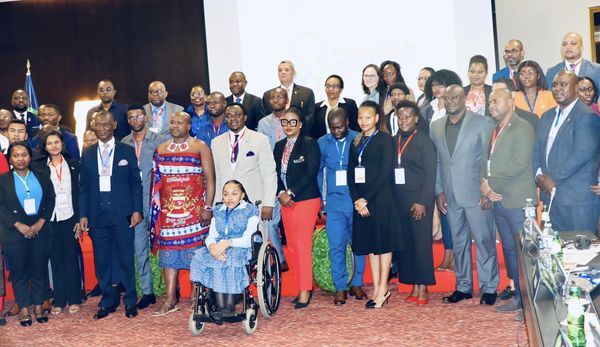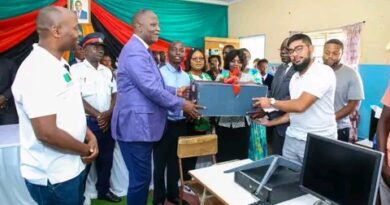SADC Youth Forum Highlights Human and Financial Capital for Sustainable Industrialisation
The Government of the Republic of Angola and the SADC Secretariat, in collaboration with the United Nations Population Fund (UNFPA), convened the SADC Youth Forum to address the theme “Human and Financial Capital: The Key Drivers for Sustainable Industrialisation in SADC.”
The forum aimed to integrate youth into regional and national development initiatives and was attended by youth representatives from 15 SADC Member States.
The Forum, officially opened by the Minister of Youth and Sports of Angola, Dr. Rui Falcão Pinto de Andrade, underscored the significance of leveraging the youthful demographic, with individuals aged between 15 and 35 years making up about 35% of the region’s population.
The Minister highlighted the pressing challenge of youth unemployment, particularly among young women, and called for more inclusive and representative National Youth Councils.
Representatives from various sectors, including the President of the National Youth Council of Angola, Mr. Isaías Kalunga, and the President of the International Youth Forum (FIJE), Mr. Clinton Matias, emphasized the immense potential of youth in regional development.
These sentiments were echoed by the SADC Deputy Executive Secretary for Regional Integration, Ms. Angele Makombo N’Tumba, and the UNFPA Officer in Charge/UNAIDS Director for Angola, Dr. Hege Wagan.
Interactive panel discussions at the Forum covered crucial topics such as peace and security, climate change, HIV and AIDS, trade, and innovation. Key concerns raised included maintaining peace and security by upholding democratic principles and promoting peaceful dispute resolution.
Participants also highlighted the significant challenges posed by climate change and urged Member States to pursue environmentally sustainable economic growth pathways with youth participation.
Initiatives towards developing a SADC Investment and Innovation Agency for Young Entrepreneurs were noted, aiming to transform the business sector, create jobs, and drive economic growth.
Young entrepreneurs were encouraged to organize effectively, access information, and leverage opportunities within the SADC Free Trade Area. While acknowledging strides made in combating HIV and AIDS, the Forum stressed the need for continued vigilance and active youth participation in prevention efforts.
The Forum concluded with key recommendations aimed at enhancing youth integration in decision-making processes, including the establishment of a SADC Youth Desk at the SADC Secretariat, creation of offices to coordinate youth issues within the SADC National Contact Points, and the development of public policies to encourage active youth participation in the economy and representation of young women in development processes.
Additionally, the recommendations called for the implementation of economic growth pathways that prioritize environmental preservation and youth involvement, as well as the execution of targeted HIV and AIDS awareness campaigns for youth, focusing on prevention.



